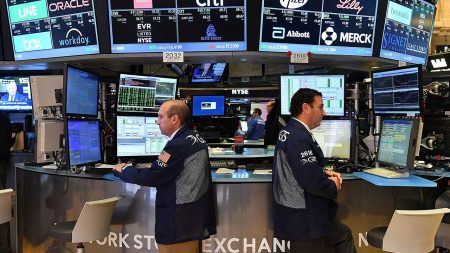Alistair Berg/Getty Images
Alpha is the return on an investment that’s incrementally more than a benchmark index such as the S&P 500 or another appropriate benchmark. Alpha is used as a yardstick when an investor chooses an active investment strategy, meaning they’re trying to outperform the market. So alpha is a way to measure how much extra juice a good investment manager can create above and beyond what a passive investor could achieve with no effort using an index fund.
Alpha is often used to assess the performance of mutual fund or hedge fund managers and determine whether or not they add value for their clients.
For example, if you manage a large-cap portfolio that returns 11 percent and the S&P 500 was up 10 percent during that time, then you’d have 1 percent alpha. The benchmark should be appropriate for your investment strategy. If you’re managing a portfolio of large-cap stocks, you’ll want to compare it to a diversified index of large-cap stocks to see whether you’re generating alpha.
While alpha is typically thought of as positive, it can also be negative if an investment lags its benchmark.
Alpha vs. beta: What’s the difference?
Alpha and beta are two Greek letters that get used a lot in investing, but their meanings can be misunderstood.
Alpha is generally used to measure how much an investment outperformed its benchmark. Fund managers conduct deep research on companies and other assets to try to gain an edge over the rest of the market, all in their effort to generate alpha.
Beta, on the other hand, is used to measure an investment’s volatility, which many use as a measure of risk, relative to a benchmark. The market as a whole has a beta of 1, so if an asset has a beta above 1 it is considered more volatile than the market, while if its beta is below 1 it’s considered less volatile.
More generally, beta also refers to the returns that any investor could achieve by simply owning the benchmark index as a passive investment and assuming overall market risk.
Keep in mind that just because an investment is expected to be less volatile based on its recent trading history doesn’t mean it will continue being less volatile in the future. Things can change quickly in the investment world, and unpredictable events can always influence a stock’s performance and volatility .
Here are the betas of three investments as of July 2024:
- Vanguard 500 Index Fund (VOO): 1.00
- Tesla (TSLA): 2.32
- Walmart (WMT): 0.52
A passive investor who’s looking to earn the market return might choose to invest in the index fund with a beta of 1, whereas a more aggressive investor might be interested in Tesla because of its high beta. Defensive investors might look to stocks with betas less than one, such as Walmart, because they’re expected to be less volatile.
How to generate alpha
Generating alpha is extremely difficult over the long term. Most actively managed mutual funds fail to outperform their benchmarks over time, despite having large research teams and access to company management. Studies have shown that most investors would be better off investing in low-cost index funds instead of trying to beat the market or generate alpha.
However, if you’re trying to generate alpha, these tips may serve you well.
Your investment plan should include:
- Closely following what is happening both in the markets and from a macroeconomic perspective.
- Studying financial reports, SEC filings and listening to conference calls with company executives.
- Constructing a portfolio of investments that is different from the overall market. It’s impossible to outperform if you own the same stocks in the same portion as the market.
- Having a process for screening to find the best performing stocks and weighing them against each other.
- Concentrating investments towards ones that you think are most likely to outperform.
- Learning from mistakes and keeping your focus on how you’re doing versus the broader market.
Bottom line
Investing alpha is a measure of investment return that is higher than the broader market. While investing alpha is a simple concept, it’s very difficult to generate it consistently over the long-term. So don’t expect to beat the market with ease.
Read the full article here










